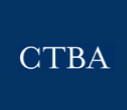New Chicago mayor, lots of education questions
by Bobby Otter, Budget Director
Last week, Mayor Rahm Emanuel decided that he would not run for re-election for Mayor of Chicago. A new mayor also means a change in leadership for Chicago Public Schools (CPS). What are some of the largest questions related to CPS that the new mayor will face when he/she takes office?
1. How hands on will the new mayor be?
Arguably the biggest difference between how Mayor Emanuel and his predecessor Richard J. Daley handled CPS was that Emanuel was more, well, hands on. Under Daley, there was at the least the appearance of separation between CPS and City Hall. That hasn’t been the case with Emanuel. This has given the impression that CPS has not had as much independence under Emanuel as it did under Daley. Will the next mayor give more freedom to CPS or will the current system, where orders flow in one direction, stay in place?
2. Will there be a new CPS CEO?
How the new mayor manages CPS will thus determine if he or she wants to replace current CPS CEO Janice Jackson. Jackson is new on the job, having taken over the reins at CPS in January, but a new mayor may very well want their own person to be the CEO of the nation’s third largest district. Jackson’s story of being a CPS student, then teacher, then principal, and finally CEO is appealing, but considering the importance and attention that CPS garners within every neighborhood in Chicago, the new mayor will want someone whom he or she trusts and can work with closely.
However, a new CEO would mean that CPS would have its ninth CEO over the last 10 years. And there’s also the chance that Jackson will not want to work for another mayor — after all, that’s exactly what happened eight years ago.
3. Where will the next mayor stand on the issue of an elected school board for CPS?
Currently, CPS is under mayoral control: the mayor picks who sits on the Chicago Board of Education and recommends the CEO of the district, who is then approved by the Chicago Board of Education. For years a number of groups within CPS have advocated to change the law so that the Chicago Board of Education would become an elected office. However, any change in how the Chicago Board of Education is appointed would need to be changed by lawmakers in Springfield.
It’s unlikely that any mayoral candidate would come out in support of an elected school board, but it also might not be an issue that the next mayor would spend political capital on defending to keep. A fully elected school board would have huge implications how CPS is run — instead of being beholden to the mayor, CPS would instead become a much more independent government body. A new mayor may not want to have to deal with the day-to-day issues that come up when running a district as large as CPS, but they also would not want to lose all say in how the district makes policy. Thus, a hybrid elected school board where, say, the public elects four members and the mayor appoints five could be a compromise outcome.
4. What’s next for charter schools?
Charter expansion exploded under Mayor Daley and Emanuel; today, nearly one out of six CPS students attends a charter school.
Will the next mayor continue to promote charter schools? Since CPS has been cash strapped much of the last decade, it often has come across that charters have been promoted at the expense of CPS-run schools, especially neighborhood schools. And as charters have grown in enrollment and influence, naturally so has CPS spending on charters. Over the last decade, as CPS was required to make tough fiscal decisions, charters were often able to avoid the cuts that CPS neighborhood schools forced to make. Will the next mayor maintain that path?
5. What will happen with the new teachers’ contract?
The current contract with the Chicago Teachers Union expires on June 30, 2019. That’s roughly six weeks after the new mayor will take over. While a strike on July 1, 2019, is highly unlikely, the longer CTU teachers go without a contract, the more likely a work stoppage becomes. And while CPS and CTU were able to avoid a work stoppage in the fall of 2016, until a new contract is agreed upon, the possibility remains.
6. Will a new mayor pursue closing CPS schools?
Since 2005, CPS has added 102 charter schools while it has closed 36 CPS run schools, while over this time span CPS has seen enrollment decline by over 55,000 students, as illustrated below.
Under both mayors Daley and Emanuel, CPS has been adding seats — almost entirely charter seats — while watching enrollment drop. CPS under Daley would close five to ten schools annually; Emanuel took a different approach, deciding to close 49 schools at once in 2013 and then putting in a five-year moratorium.
However, since 2013’s mass school closing, enrollment has continued to drop while the number of schools across CPS has slightly increased. Prior to Emanuel’s decision to not run for re-election, there were whispers that another round of school closing would take place after the election. Will the next mayor be as eager to close schools? Or will they take a different approach?
7. What is the future for programs Mayor Emanuel launched?
The longer school day. Expansion of International Baccalaureate (IB). Universal preschool for 4-year-olds. These are just some of the programs that were launched at CPS under Mayor Emanuel. While the longer school day is probably here to stay, CPS under new leadership might decide to cut back on IB programming and instead of putting money from the state towards preschool, put it toward the woefully underfunded K-12 classrooms.
